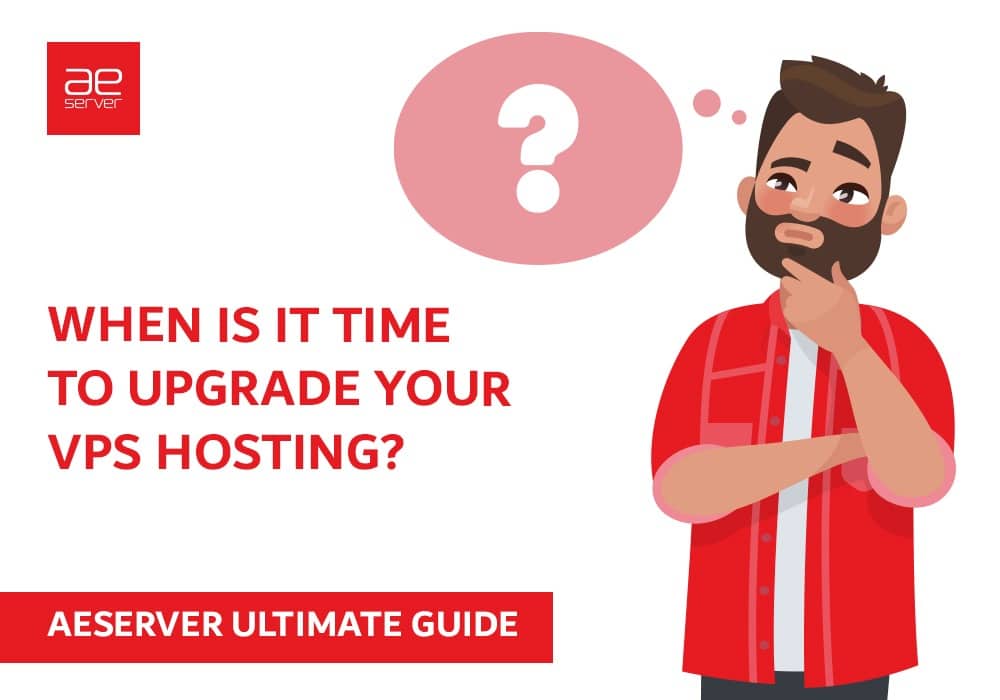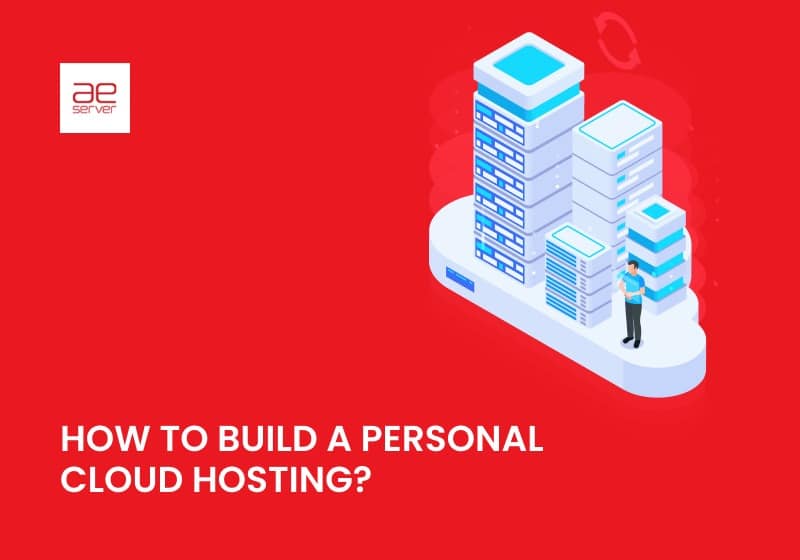
When is it Time to Upgrade Your VPS Hosting?
When you start building your business from the ground, you probably didn’t think about upgrading your hosting plan. But when time goes on, and you find your website is becoming slow, receiving more traffic, and you run into a lack of resources, you may feel like your current hosting plan couldn’t keep up with the requirements of your website. Businesses can quickly outgrow shared hosting when they need more resources to handle an influx of visitors, advanced security requirements and specialized software needs. As your business grows, so does your demand for more resources.
If this is relatable, you’re in luck. This article will outline five main reasons you need to upgrade your hosting plan to a VPS. Its use cases and a basic overview make it easy to understand how to optimize your hosting experience.
First of all, what is VPS hosting?
A virtual private server, popularly known as VPS, runs on a physical server divided into virtual sections. However, it mimics all features of a dedicated server having its operating system, RAM, storage, and CPU resource. It provides users full access to administrative privileges, meaning you can customize your VPS in any way that you wish.
You can say that it’s like a meeting point of shared and dedicated hosting. If you’re confused about dedicated hosting and shared hosting, the Differences between Shared Hosting & Dedicated Hosting might help. You can check the article before proceeding further.
5 Reasons You Need To Upgrade to a VPS Hosting
If you are on shared hosting for a time, you may be wondering when I should upgrade my hosting plan? There are no complex rules, but monitoring your website can give you good indications.
Here are five reasons you might need to upgrade your hosting plan.
Website Is Getting Slow:
With a well-optimized website, you can immediately tell if something goes wrong. If your site is taking longer than usual to load, you most likely need more resources like disk space and bandwidth. It is time for your site to have its own place rather than a shared environment.
A VPS allows you to use all resources on your server. You don’t have to worry that a few heavy users on a shared server consume more resources and cause your site to perform erratic and slow. VPS hosting has plentiful bandwidth and storage. After switching to a VPS, you will notice a significant positive difference in your website performance.
Not Enough Storage:
A shared server can handle basic website needs, but as your business grows, you will find that you may need more storage space. Even if you daily clean up your files, this method will stop working for you at some stage. There are limits to upgrading shared hosting plans, and when you hit those, A VPS will be your next step.
When your business expands, you also might need more websites. A VPS can accommodate multiple websites and domains, allowing you to create a greater level of exposure and promote more than one website with a single account.
A VPS can scale according to your needs for more resources and space. If your website has dynamic content, a VPS can deliver all your sites faster.
How to Secure Your E-Commerce Website (GUIDE)
Need for Specialized Security Settings:
While you have security on your shared hosting account, you can’t control what happens to your neighbours on the same server if you’re facing poor performance for no apparent reason. It may be because of security breaches on other accounts.
Once you get a VPS server, you can customize and set limits for your own security parameters. The security on shared hosting is not the level of security you and your business need; a VPS will provide a much higher level of security settings under your control. Your website won’t affect if others on your server are targeted.
Looking for Flexibility:
Shared hosting is suitable for small websites and blogs because it offers limited resources. If other users on your server maximize those resources, your site will not perform well.
If your website is growing and you are receiving more traffic, shared hosting is no longer suitable for you. Heavy dynamic sites, shopping carts and video streams are not suitable to put on a shared server. As your website evolves, you need the best possible performance, and a VPS can deliver advanced needs with great results.
Why Registering Multiple Domain Names Is Good for Business?
Better Business:
Your business will certainly increase if your website is faster and has excellent performance. When a business moves to VPS, the cost may be a little higher, but over time a VPS allows you the improvements to make more loyal and satisfied customers so that your revenue can grow. Today, investing in a VPS can help you increase your sales substantially over time.
Slow websites, not secured, and failing to have enough resources are less attractive to visitors.
Virtual Private Server Use Cases
Generally, VPS plans are more costly than shared hosting plans, so when should you use them?
Knowing the power of VPS, it is more suited to high traffic websites or those who need more security and reliability. Some of the examples of VPS use cases are:
Ecommerce Websites
You can’t just put your online shop anywhere. Having a secure eCommerce website is essential for you and your customers. Online shops that do not process customers’ data, whether personal or financial Ecommerce websites, also have to be able to handle high traffic volume while guaranteeing uptime; such requirements make them a perfect fit for VPS hosting.
E-Commerce and E-Business – Another Layer of Hosting
News Portals
While VPS is well known to manage high traffic levels efficiently, it can also serve large volumes of data in a short time span. And when we talk about these types of requirements, news portals are among the highest resource consumers.
Web Applications
Web applications need more hosting resources as compared to static websites. A VPS plan has dedicated resources to give application-driven websites more excellent reliability and higher performance.
Business Websites
Although business websites may not have high bandwidth consumption, they can benefit from a VPS for more excellent reliability, security and performance. Business websites that perform poorly or face downtime can damage a significant brand.
Popular Personal Blogs
Personal blogs are mostly non-commercial but can become unbelievably popular with the right ideas and promotions. Usually, shared hosting is not recommended when your website starts growing. In a case like this, moving your website to VPS hosting can be inescapable.
Conclusion
Shared hosting is a good place to start as you learn how to run a website. But as your website grows, you need to give the appropriate resources your website needs. At this point, choosing a VPS is a fantastic option. It allows you to transfer large amounts of data and ensure your site will always be available. Additionally, managing your server is something not everyone can do. In this case, it is good to consider managed VPS hosting.
Upgrading your shared hosting to VPS hosting is not difficult. The team at AEserver will ensure your transition is smooth throughout moving from one server to another. Don’t hesitate to contact our support team via email or phone if you still need any assistance. Our support is available 24×7.



